Fall Cycle, Week 7
Start your time with a Check-in (about 15 minutes)
inductive bible study (30-40 minutes)
Open your Bibles and begin with a prayer, asking the Holy Spirit to help you read God's word. Read the passage out loud once together and then silently once more on your own, noting your observations and questions. Then take a few minutes to share your observations and questions together.
Key Scripture: Romans 4:1-12
What then shall we say that Abraham, our forefather according to the flesh, discovered in this matter? 2 If, in fact, Abraham was justified by works, he had something to boast about—but not before God. 3 What does Scripture say? “Abraham believed God, and it was credited to him as righteousness.”[a]
4 Now to the one who works, wages are not credited as a gift but as an obligation. 5 However, to the one who does not work but trusts God who justifies the ungodly, their faith is credited as righteousness. 6 David says the same thing when he speaks of the blessedness of the one to whom God credits righteousness apart from works:
7 “Blessed are those
whose transgressions are forgiven,
whose sins are covered.
8 Blessed is the one
whose sin the Lord will never count against them.”[b]
9 Is this blessedness only for the circumcised, or also for the uncircumcised? We have been saying that Abraham’s faith was credited to him as righteousness. 10 Under what circumstances was it credited? Was it after he was circumcised, or before? It was not after, but before! 11 And he received circumcision as a sign, a seal of the righteousness that he had by faith while he was still uncircumcised. So then, he is the father of all who believe but have not been circumcised, in order that righteousness might be credited to them. 12 And he is then also the father of the circumcised who not only are circumcised but who also follow in the footsteps of the faith that our father Abraham had before he was circumcised.
Footnotes
[a] Romans 4:3 Gen. 15:6; also in verse 22
[b] Romans 4:8 Psalm 32:1,2
Take a few minutes to share your observations and questions as a group.
You might consider:
- What's happening here?
- What key words are you noticing? What do they mean?
- What's the cultural background we need to know to make sense of this text?
- What's the big idea?
Take some time to answer a KEY QUESTION you've raised as a group and think through how the issues you've explored apply to your lives.
DISCUSSION (about 20 minutes):
1) In Romans 4:3 and again in 4:9, Paul quotes Genesis 15:6. Read that verse in its context together. In 4:9-12, what does Paul point out about the timing of Abraham's circumcision? What is the significance of this?
2) Next, Paul considers David, the greatest king in Israel's history. What did David discover about righteousness apart from works (v. 6-8)? Who does Paul say that the blessedness of being forgiven is for?
3) Discuss what Paul says about "faith" and "works". What is the relationship between them? How does Genesis 15:1-6 help us see what "faith" is?
Application:
(adapted from Tim Keller, Romans 1-7: The Gift of God):
Imagine you died tonight and God said to you, "Why should I let you into heaven?" What would you say?
Many would give these reasons:
- "Because I've tried my best to be a good Christian."
- "Because I believe God and try my best to do his will."
- "Because I believe in God with all my heart."
None of these are saving faith. The first is salvation by works; the second salvation by faith and works; the third salvation by faith as a work. True saving faith is a trust transfer: trusting only in God and not ourselves.
Reflect personally for a couple minutes on this question:
Do I have this kind of faith?
After this personal reflection, discuss together:
Is there anything about Paul's teaching on justification (i.e. salvation) by faith alone that you find challenging?
What obstacles do you experience that get in the way of receiving and living out this kind of faith?
Are there next steps you can take to grow in receiving and living out this faith?
Close with a time of prayer.


